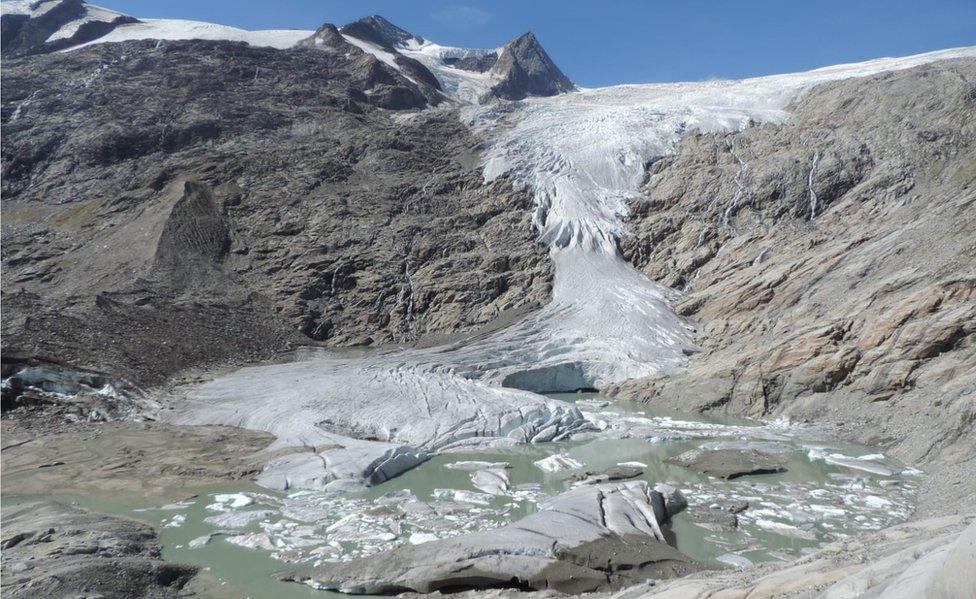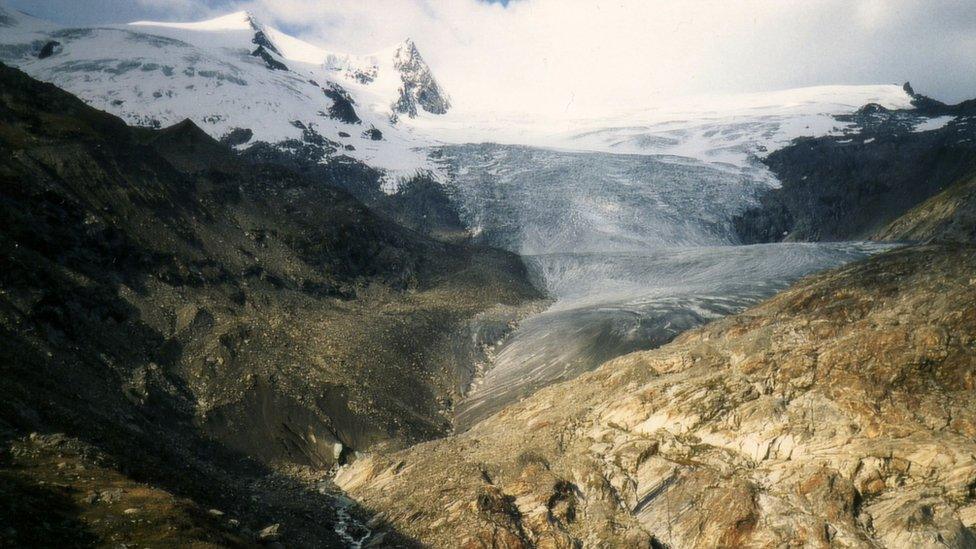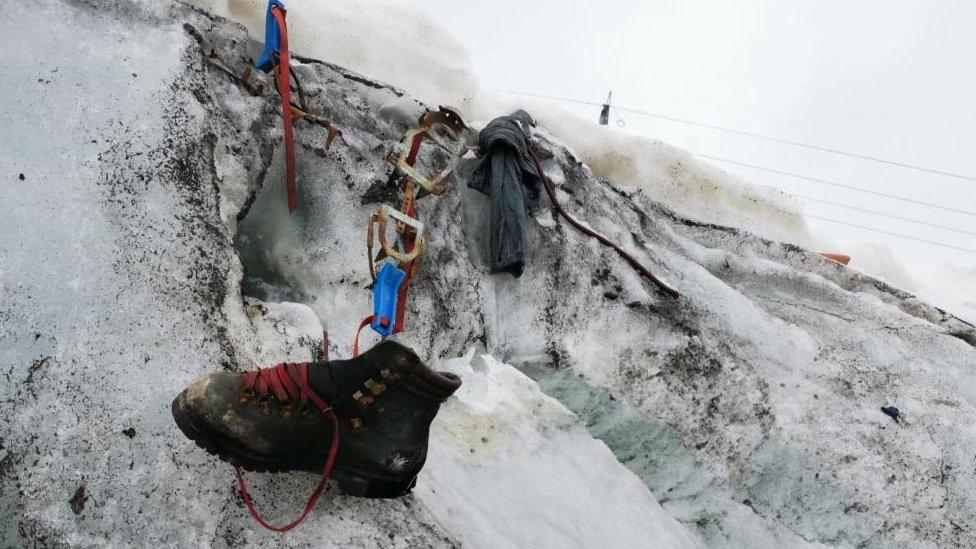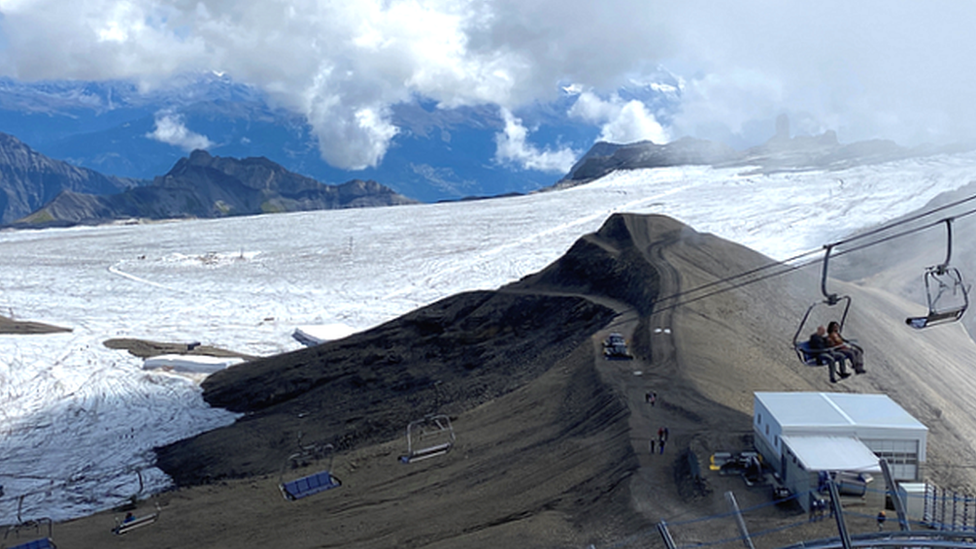Alpine guide finds body missing on Austrian glacier since 2001
- Published

The man's body was found on the Schlatenkees glacier, one of the fastest-melting glaciers in Austria
The body of a man who is believed to have died more than 20 years ago has been found on a rapidly melting glacier in the Austrian province of Tyrol.
Police say a mountain guide discovered the body last week 2,900m (9,500ft) up the Schlatenkees glacier in East Tyrol.
A rucksack was found close by containing a bank card and a driving licence. Police used a helicopter to help retrieve the body.
Police think the man was from Austria and was 37 years old when he died.
DNA tests are being carried out to establish his identity.
Police spokesman Christian Viehweider told BBC News it would take several weeks before the results of those tests would be known.
The man, who had ski touring equipment with him, is believed to have had an accident in 2001.
The Schlatenkees is thought to be one of the country's fastest-melting glaciers. In its report for 2021/2022, the Austrian Alpine Club said it was the glacier with the biggest recorded loss of 89.5m.
Last April the Austrian Alpine Club said the melting of glaciers in Austria was at a record high. It said that it had never recorded such a large shrinkage of glaciers since its history of measuring began in 1891.
There have been several similar discoveries in rapidly shrinking Alpine glaciers this summer as the melting ice reveals long-held secrets.
In June a climber found human remains and bones on the same glacier in Tyrol, in the Venediger group of mountains. The remains are believed to have been in the Schlatenkees for decades. DNA testing is under way.
"It is rather unusual to have two such discoveries on a glacier within such a short time," Mr Viehweider said.
He said that around 45 people, missing in the Austrian Alps since 1964, are still unaccounted for.
In Switzerland, the body of a German climber - missing since 1986 - was found on a glacier close to the Matterhorn mountain last month. It was discovered by mountaineers crossing the Theodul glacier above Zermatt.
They noticed a hiking boot and crampons emerging from the ice.
DNA analysis showed the body to be that of a German climber, who disappeared 37 years ago. A huge search and rescue operation at the time failed to find any trace of him.
Police did not name the climber but said he was aged 38 when he went missing during a hike.
Switzerland and Austria have been experiencing very hot conditions this summer and there are fears for the future of the Alpine glaciers which are key to Europe's environment.
The winter snow stored by the glaciers fills European rivers such as the Rhine and the Danube, providing water for crops, or for cooling nuclear power stations.

This was the Schlatenkees glacier in 2001, the year the man whose body has been found went missing
Related topics
- Published28 July 2023

- Published31 August 2022
